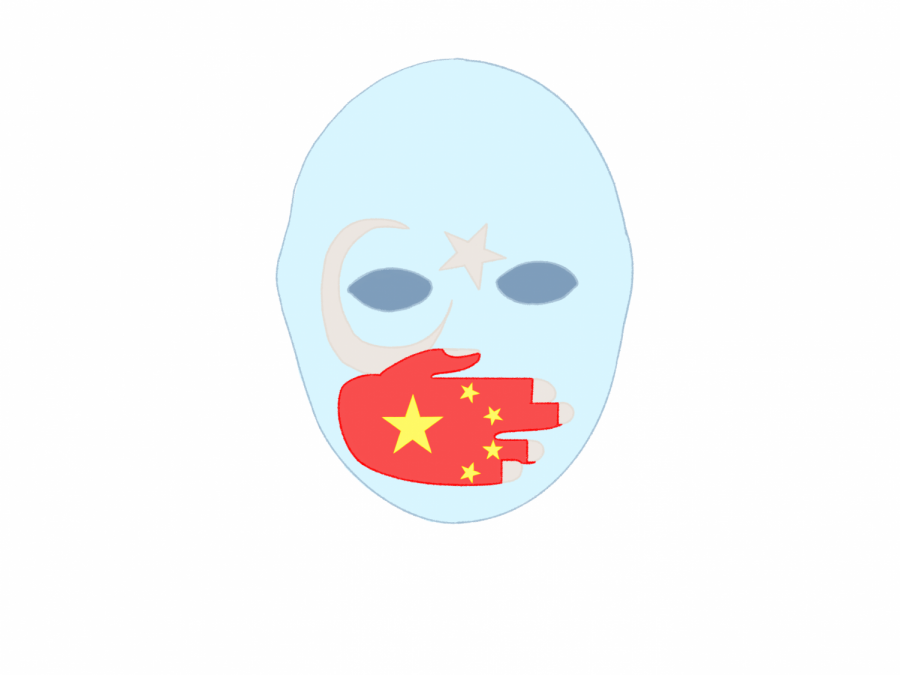There are stark differences between promoting diplomacy and propaganda, and San Diego State seems to have difficulty discerning between the two.
On March 17, a President’s Lecture Series event was held in conjunction with the Charles W. Hostler Institute on World Affairs, and they hosted Zhang Ping, the Consul General of the People’s Republic of China in Los Angeles.
The Senior Director of the Hostler Institute, Nancy Nicholson, emphasized the Hostler Institute’s mission of letting the other side be heard in these discussions. However, this was anything but a discussion.
The event started with introductions by Professor Bruce Reinig and President Adela de la Torre before transitioning into Ping’s speech. Nicholson said Ping used his time to read a written speech by the Chinese Consulate team and answer questions regarding economic relations that were prepared beforehand. There was no exchange of dissenting ideas and the Zoom chat was closed.
The event was also held because it was relevant to the meeting on March 19 with Secretary of State Antony Blinken and Chinese officials in Alaska to discuss U.S.-China relations, according to a report by the Associated Press. Then on March 22, the U.S., Canada, Britain and European Union imposed sanctions on two officials from Xinjiang in response to the region’s human rights violations, according to a report by Politico.
Ping spoke about the adversarial relationship between the U.S. and China, the tariff and sanction measures currently imposed on China and how the U.S. should stop meddling in Chinese internal affairs.
Among these affairs, is the Uyghur genocide in the Xinjiang Uyghur Autonomous Region, in which Ping denied any wrongdoing done by China.
“The claim that there is genocide in Xinjiang couldn’t be more prosperous… [the United States’] ulterior motive is to undermine security and stability in Xinjiang and hold back Chinese development,” Ping said. “This miscalculated attempt is doomed to fail.”
No refutation was given from President Adela de la Torre or any representatives from the Hostler Institute.
SDSU political science professor Ahmet Kuru also had a problem with bringing a member of the Chinese government to promote the country’s propaganda.
“Reports of brainwashing, torturing, raping [of Uyghurs] are all over the media,” Kuru said. “Under these circumstances, SDSU should not have provided a propaganda opportunity to the Chinese government.”
The United States determined the atrocities in Xinjiang as genocide on Jan. 19, according to a report by the U.S. Department of State. The Newlines Institute for Strategy and Public Policy applied the 1948 Genocide Convention in a report about the treatment of Uyghurs and also determined it a genocide because of several factors.
Among these factors is the mass internment of about 800,000 to 2 million Turkic Muslims (Uyghurs, Kazakhs and Uzbeks), forced sterilization of Uyghur women, coercement into Han-Uyghur marriages, forced labor, eradication of Uyghur identity with the demolition of mosques and other sacred sites, the targeting and detention of Uyghur intellectuals, and many more.
The Council on Foreign Relations explained how China is detaining Uyghurs, and other Turkic Muslims, because of their concern that they hold extremist views. Chen Quanguo, Xinjiang’s Communist Party Secretary, is in charge of the Uyghur subjugation and expanded the use of security and surveillance in Xinjiang.
Chinese government documents have even started to “break their lineage, break their roots, break their connections, and break their origins,” according to the Newlines Institute.
When asked about the concerns raised because of Ping’s blunt denial of these atrocities with no refutation, Nicholson referenced the First Amendment.
“We’re allowed to speak, that’s part of the beauty of being an American,” Nicholson said.
If SDSU was interested in the true exchange of ideas, they would invite another ambassador or academic for a scholarly discussion — which is what the University of Southern California did when Ping spoke at the institution in 2019.
The concern with criticisms of the Chinese government leading to a rise in Asian hate crimes in the U.S. is also preventing some individuals from speaking out. However, Professor Kuru made a distinction between China-bashing and criticizing its government.
“China-bashing is immoral, but criticizing policies of the Chinese government is a moral duty,” Kuru said.
Criticizing a government for their human rights violations and SDSU’s complicity in regards to promoting the Chinese government’s propaganda, is not synonymous with Trump’s unhinged and unscientific characterization of COVID-19; which has led to anti-Asian sentiment, according to a report by the American Journal of Public Health.
The distinction is clear.
The distinctions between promoting diplomacy and propaganda are also clear, but SDSU fails to distinguish the two in this case. Events like these – ones that obstruct the process of academic discussion and the exchange of differing viewpoints – have no place at SDSU.
Brandon Balayan is a junior studying journalism. Follow him on Twitter @BalayanBrandon.











